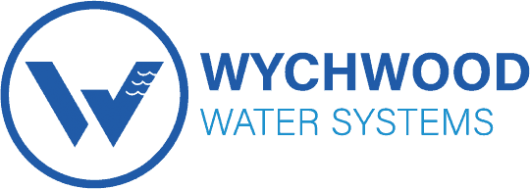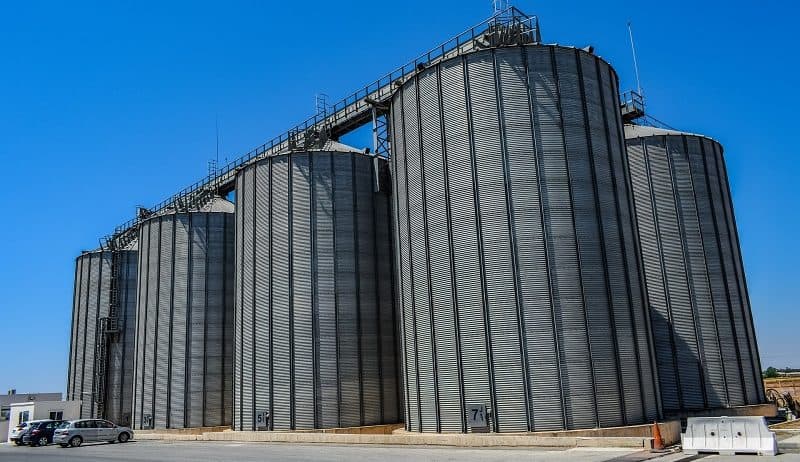Did you know that in the vast majority of cases, industrial wastewater can be recycled back into your feed water or mains water? Any water used for cooling, light cleaning, or washing is ideal for re-filtration into purified water.
What is water recycling?
Water recycling is the process of converting wastewater into water that can be reused for other purposes. These can include irrigation of gardens and agricultural land or recharging surface water and groundwater. Reused water can be directed to meet certain needs in homes (e.g. flushing toilets), factories and industry, and can even be treated to achieve drinking water standards.
Who should recycle their wastewater?
Wastewater reuse is an established practice used for irrigation, especially in arid countries. This reduces scarcity and the pressure human activities place on natural water bodies. A potentially positive aspect is in some cases the nutrient content of the wastewater, which can reduce the need for other fertilizers.
- Here is the list of industries that could benefit from recycling wastewater:
- Farmers and agri-tech
- Fish processors
- Abattoirs and meat processors
- Soft drink manufacturers, breweries and distilleries
- Dairy operators
- Digestate & slurry treatment sites
What are the benefits of water recycling?
The reuse of water/wastewater as an alternative water source can provide significant economic, social and environmental benefits to such programs. In agriculture, irrigation with wastewater can help to increase crop yields, reduce ecological footprints and increase socio-economic benefits.
Benefits include:
- Increased water availability;
- Replacement of drinking water – leaving drinking water for drinking and reclaimed water for non-potable uses (e.g. industry, purification, irrigation, domestic use, toilet flushing, etc.);
- Reduced energy consumption related to water extraction, treatment and distribution compared to deep groundwater use, water imports or desalination;
- Increased agricultural production (i.e. crop yields)
- Improved environmental protection through the restoration of streams, wetlands and ponds.
What are the methods of recycling water?
Making sure that you get the most out of your water can help to reduce your water bills, beat water scarcity, and help the environment. Even if your wastewater is contaminated by pollutants, it can still be salvaged with the right water treatment equipment. So, how is this done? Here are three of the most popular methods that modern industries use to recycle their wastewater.
Combined Reverse Osmosis Water Filtration
Reverse Osmosis (RO) is the most common process used in water recycling. Reverse osmosis units use membrane filters to clean feed water of any particles and impurities. A reverse osmosis cylinder will typically achieve a c.75-85% purification rate. This can be raised further with post-processing and ‘polish’.
Most RO units are capable of maintaining a continuous processing flow. RO will often be combined with many other processes (such as chlorination and ultrafiltration to remove microorganisms) to produce high-quality, sterile water. As an added advantage, it can usually double as a freshwater and saltwater processor.
If you’re relying on feed water that sees light or passive usage before draining, a reverse osmosis unit is a cheap way to re-purify and quickly reuse your liquid. It’s commonly used in industries that rely on boiler feed water. Turbines and steam pipes rely on a steady supply of purified water that sees little contact with heavy contaminants.
It’s popular in metal finishing workshops, as well. Recycled RO water is a great way to produce a cost-effective, spot-free rinse, free of chemical blemishes.
Is Reverse Osmosis right for you?
If you are unsure about the benefits of a reverse osmosis water purification system for your application, the experts at Wychwood Water Systems can help. Our team can answer your questions about any type of water purification system and technology available, and also recommend the right system for you. Click here to see our reverse osmosis systems, or visit our contact page to get in touch with us via email or phone.
Wastewater Redirection System
One useful and cost-effective way to make the most out of clean, disinfected, but previously used wastewater is to redirect it into other systems which don’t require stringent criteria for water use. Fire sprinklers are often fed by treated wastewater, as are irrigation and garden sprinklers and toilets. The wastewater pipe is simply plumbed into a tank or reservoir that feeds the secondary system rather
than an outlet. Redirection is focused on the quick, cheap reuse of wastewater. It isn’t at all recommended for effluent water or that polluted by sewage. Bear in mind that there are often tight regulations attached to what sort of water is used for growing crops or supplying livestock.
Membrane Bioreactor Water Treatment Systems
Bioreactors are a slower and more convoluted way to recycle used water, but a highly effective one. Membrane Bioreactors combine a traditional inorganic material filtration process with a prolonged period of anaerobic (sealed, without oxygen) or aerobic (open, oxygenated) digestion. Bacteria and a carbohydrate feed are released into a closed tank to let the bacteria eat and break down the biodegradable organic material in the sludge.
This eventually produces a mass of effluent water and biogas. The effluent can then be re-filtered via carbon filtration and reused or pumped back into an aquifer for natural cleansing. The biogas can be repurposed to produce fuel or electrical energy.
Bioreactors are commonly used in paper mills, sewage plants, agriculture, and the food and drink industry to clean heavily polluted water that has been mixed with a complex range of organic substances. It’s much more expensive than reverse osmosis, though. Output water has to be fully re-filtered and disinfected before it can be used in industrial or domestic systems again. It’s also worth noting that Bioreactors can’t cope with artificial materials such as micro-plastic shards – that’s what the initial filtration process is there to catch.
Commercial Water Treatment Solutions
As water becomes an increasingly valuable resource worldwide, the pressure to conserve and reuse will increase. Ultimately, the long-term benefits of introducing an in-house water recycling system far outweigh any disadvantages.
For the best commercial water treatment method for your industry, and handy tips on how to maximise the volume of water you can recycle, contact our team of experts at Wychwood Water Systems today.
To find out more about what Wychwood Water Systems can do to help you recycle your water, including the designing, manufacturing, installing & commissioning, servicing, and refurbishment of water purification systems, view our services to find the commercial water treatment solution you’ve looking for.
To find out more about how we could help you recycle your water, including the designing, manufacturing, installing & commissioning, servicing, and refurbishment of water purification systems, request a Free consultation to find the commercial water treatment solution you’ve looking for.


